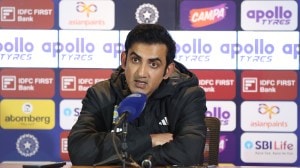Picture this – an unemployed meek man in his 20s in a 1970s Bollywood film is looking for a job. He is down on his knees, begging for a job, and then, he pulls out a card that many before him, and many since him have pulled – he needs the job to get his sister married. Now, imagine this – a macho-looking guy has got the villain pinned down but then the bad guy shows his biggest trump card that will have the hero trembling with anger – the villain has the hero’s sister kidnapped and is now using her as blackmail.
Bollywood movies, for decades, liked to use the brother-sister relationship in the stories only when they wanted to give an extra push to the hero and make him seem a bit more heroic. He could be seeking revenge for his sister’s rape (which was casually used as a plot device in many older films), or he could be struggling to make enough money to collect for her dowry (which was never even addressed as problematic) – the sister was always just the crutch. It was assumed that the ‘big strong brother’ had to be the saviour for the ‘bechari behna‘. It was perhaps our social conditioning that led us to buy into these stories because, after all, the festival of Raksha Bandhan has always been all about brothers promising sisters that they would be their protectors, thereby further perpetuating that women need to be protected.

 In Pyaar Kiya To Darna Kya, Arbaaz Khan plays the brother to Kajol’s sister who dictates his sister’s romantic life.
In Pyaar Kiya To Darna Kya, Arbaaz Khan plays the brother to Kajol’s sister who dictates his sister’s romantic life.
We have come a long way since these movies were seen as completely acceptable for the fundamental idea of a brother-sister relationship has gone through many transformations in cinema. While our movies are still male-dominated, and the idea that men are the saviours is still largely perpetuated in Indian cinema, the representation of a brother-sister relationship has gotten an upgrade in the last few years. Of course, we still have a Raksha Bandhan or a Simmba where the dowry death or the rape of a woman is a mere plot device to push the ‘hero’ on his transformative hero’s journey. But to counter these films, there’s also Nagesh Kukunoor’s Iqbal or Onir’s My Brother Nikhil where the sister and brother relationship goes beyond the gender stereotypes.
In these films, the duties of a sibling aren’t defined by their gender but by the love they have for each other. One of the siblings aids the other’s journey and offers them the support they need. The roles here are gender-neutral as they don’t abide by any gender stereotypes. These characters are written in a way that they could belong to any gender but it just so happens that they were both played by women. But it is also worth noting that in both these cases, it is women aiding men’s journey, and not the other way around.
 Khadija is the biggest support in Iqbal’s journey.
Khadija is the biggest support in Iqbal’s journey.
One of the earliest films made on the brother-sister relationship was the 1954 film Boot Polish where little kids named Bhola and Belu are left to fend for themselves on the streets. Belu, the sister, is the one who breaks down easily in front of her slightly older brother Bhola, who has taken a vow that they will never beg. Since the two kids are extremely young, none is the saviour but their love for each other is the soul of the film.
In fact, when Dev Anand made Hare Rama Hare Krishna in 1971, it was one of the first films of its era that had the brother-sister relationship right at its centre. While the brother here was the traditional saviour, he wasn’t particularly doing it to prove his macho attitude but for what he believed to be the welfare of his sister. It’s another story that the sister’s suicide in the end basically suggests that addicts are the biggest disappointments and should constantly live in guilt of letting their family down, but what Dev unintentionally tried to do here was tell a story that tried to explore the deeper bond of growing up in a dysfunctional family.
Like in the case of Zoya Akhtar’s Dil Dhadakne Do, where Priyanka Chopra’s Ayesha and Ranveer Singh’s Kabir share a deeper bond with each other than they do with anyone else, primarily because of the shared trauma of growing up in an emotionally volatile family. Or, in the case of Mansoor Khan’s Josh, where Shah Rukh Khan’s Max and Aishwarya Rai’s Shirley, have a shared history of growing up as orphans that has deepened their bond with each other.
Story continues below this ad
The boundaries of traditionalism were also pushed in films like Khalid Mohammed’s Fiza where it was Karisma Kapoor’s Fiza who becomes the saviour of her disillusioned brother Amaan, played by Hrithik Roshan. And when she realises that he is beyond redemption, she is the one who decides to let him go. Or in the case of Omung Kumar’s Sarbjit, which was based on a true story, where Aishwarya Rai’s Dalbir makes it her life’s mission to free her brother Sarbjit, played by Randeep Hooda, from a Pakistani prison because she believes in his innocence.
 The shared trauma of growing up in a dysfunctional family forms deep bonds, like the one shared by Ayesha and Kabir in Dil Dhadakne Do.
The shared trauma of growing up in a dysfunctional family forms deep bonds, like the one shared by Ayesha and Kabir in Dil Dhadakne Do.
While men are largely accepted as saviours of the world, and saviours of women in romantic relationships, the same isn’t true when we see a brother-sister relationship on screen. And this is perhaps why a film like Raksha Bandhan, directed by Aanand L Rai, felt so dated upon release in 2022. Writer Kanika Dhillon described the film as something that was written for the ‘cow belt’ and their betterment. Instead, what they made was a movie where the four sisters weren’t even given properly written characters. After a movie’s length of their brother, played by Akshay Kumar, trying to get them married by hook or crook as if they are dead assets for him, he realises he was wrong all along in. But for this realisation to kick in, one of the sisters has to die a tragic death.
 Akshay Kumar’s Raksha Bandhan was rejected as soon as it released.
Akshay Kumar’s Raksha Bandhan was rejected as soon as it released.
The idea of Raksha Bandhan, and who is meant to protect whom has certainly evolved in the last few decades and the same is reflected in our movies as well. We aren’t past the ‘men being protectors’ trope but at least in the case of this relationship, we have men and women being almost equal participants and that’s certainly a step in the right direction.




 In Pyaar Kiya To Darna Kya, Arbaaz Khan plays the brother to Kajol’s sister who dictates his sister’s romantic life.
In Pyaar Kiya To Darna Kya, Arbaaz Khan plays the brother to Kajol’s sister who dictates his sister’s romantic life. Khadija is the biggest support in Iqbal’s journey.
Khadija is the biggest support in Iqbal’s journey. The shared trauma of growing up in a dysfunctional family forms deep bonds, like the one shared by Ayesha and Kabir in Dil Dhadakne Do.
The shared trauma of growing up in a dysfunctional family forms deep bonds, like the one shared by Ayesha and Kabir in Dil Dhadakne Do. Akshay Kumar’s Raksha Bandhan was rejected as soon as it released.
Akshay Kumar’s Raksha Bandhan was rejected as soon as it released.































